Alisa Stepura is a musical artist/producer who started her musical journey at the age of 4, after being gifted a piano by her parents. She quickly learned to play and began composing, and at 11 started producing her own music. Starting 2020, she has been releasing a record every year on the day of her birthday. In 2021, she graduated from Columbia International College, specializing in the arts, and awarded the Jim Lawlis Memorial Scholarship, for showing excellence in musical education. A year later she enrolled into the Institute of Contemporary Music Performance for a Bachelor’s degree in Creative Music Production. Her focus fell on paying homage to earlier eras of music and exploring vintage sound. Heavily influenced by rockstars like Led Zeppelin and The Rolling Stones, she released her EP “Strike Me a Smile!” on the 21st of June, 2023. She admitted to having been mentored by the professors at her university during the course of making the EP. This three-song work was her immersion into working with analogue equipment in the nowadays’ era of digital production. Two of the songs, “Strike Me a Smile!” and “Get up”, were created with the focus on simply deriving a good and nostalgic feeling, while the track “Ratched and Divine” was her expression of anger towards how overlooked the issue of driving under the influence sometimes is in society.
- Your musical journey began at an incredibly young age. How did receiving a piano at 4 years old shape your approach to music?
Alisa Stepura: I grew so much more connected to music, especially the music I already knew and liked. I learned how to play a lot of the songs my Dad would put on our CD player every morning and it made me feel like I was a part of the music, rather than just a listener.
- At just 11, you started producing your own music. What prompted you to delve into music production at such a young age?
Alisa Stepura: Honestly just curiosity. I opened up Garage Band and realized I had the opportunity to actually create something significant. I’ve had a Yamaha synthesizer since yearly childhood and would record little 4 track pieces on it sometimes, so I’ve always wanted to create, just haven’t had the right outlet.
- Releasing a record every year on your birthday is a unique tradition. How has this annual release shaped your growth and creativity as an artist?
Alisa Stepura: It’s been forcing me to get out of musician’s block all these years. Releasing something every year seemed easy as first, it wouldn’t take me long to write and record something, but as my focus shifted from quantity to quality, it became harder and started feeling as more of a burden at times. But I’m still going 4 years strong and planning to make it to 5 and (hopefully) beyond. I enjoy not having the option of rest, it forces me to be more active.
- Graduating from Columbia International College in the arts and receiving the Jim Lawlis Memorial Scholarship is impressive. How did this academic background influence your music?
Alisa Stepura: Jim Lawlis was my first music teacher at that school. He was also the first school music teacher who believed in me. My previous music teacher wasn’t my biggest fan because I couldn’t play the clarinet good enough for his liking. It made me view music education as something that I could never enjoy fully unless I played an orchestral instrument and was a theory geek. At CIC, everything was different. Suddenly the fact that I was more into the production aspect was seen as cool instead of annoying. Mr. Lawlis was very talented, kind and patient. He unfortunately passed away in 2021, but I really enjoyed being one of his students. We got another teacher the following year, Dr. Lina Li. She was just as amazing and the way she taught theory transformed my view of it completely. I started consciously incorporating it into my own work and it made me a much better songwriter. That’s all thanks to her!
- Moving onto the Institute of Contemporary Music Performance, how has this formal education impacted your style and technique?
Alisa Stepura: Pursuing higher education in production was one of the best decisions I’ve ever made! I got much more hands-on experience with various equipment and gear. I went from thinking I can produce to knowing I can. Meeting lots of like-minded and extremely talented people has been an absolute pleasure. I finally found my style and fell in love with the world of analogue sound.
- “Strike Me a Smile!” seems to pay homage to earlier music eras. What drew you to explore and infuse these vintage sounds into your EP?
Alisa Stepura: Personal taste more than anything. I’m a huge fan of everything vintage so I wanted to create music in that style.
- Mentoring from university professors is valuable. How did their guidance specifically influence the creation of this EP?
Alisa Stepura: The mixing and mastering part was the hardest to “get right”. They guided me through it very well and I think the lessons I’ve learned from mixing the EP shaped my mixing style the most. It still needs a lot of work, but without their advice it wouldn’t be anywhere near it’s current sonic state.

- Your EP explores both analogue and digital production. What challenges did you face merging these contrasting methods?
Alisa Stepura: Some of the parts are recorded on reel-to-reel tape. I had a “bad take tape” and a “good tape”, the latter being what was then recorded into the digital project. Once I punched something into the good tape, I only really had one try to do it. If something went wrong and I was off in timing or take choice, I had to redo the whole thing to get the layers right. The vocal lines were the hardest to redo because I’m big on harmonies and having lots of them.
- “Strike Me a Smile!” and “Get up” aim for a nostalgic feel. Could you share the inspiration behind these tracks and how you captured that essence?
Alisa Stepura: Strike Me a Smile! was very heavily inspired by Heaven Is a Place On Earth. The story begins with me hearing It’s Not Living If It’s Not With You by the 1975, and as we’ve heard them sort of admit, it’s basically that same song remade in their arrangement and lyrical style. I thought to myself, I could take inspiration from that song in better ways, right? Like without stealing the entire melody. I took the instrumental arrangement of 80’s pop rock and vocal mix as inspiration for my direction and the song came to life as a result. As for Get Up, I heard Le Freak played live by my university professors at one of our fresher’s event and could not get that song out of my head for a whole year. It inspired me to make something in the same 70-80s disco style. I then of course showed it to some of my teachers. The song basically came full circle.
- In “Ratched and Divine,” you address the issue of driving under the influence. How important is it for you to use your music as a platform to highlight societal issues?
Alisa Stepura: I think addressing serious issues is important for anyone with a platform. Through music, we as songwriters shape the world in our own ways. I find it relieving to express my feelings about certain topics through music. I definitely plan on continuing to do so.
- Are there any specific experiences or moments in your life that significantly influenced the tracks on “Strike Me a Smile!”?
Alisa Stepura: After school was over, all my friends got kind of scattered around the world and got on with their adult lives. So have I, but I spent a lot of time traveling last year so I got so see lots of people from my “past life” again, in a completely new light. Everyone grew up, got serious about life goals, and are simply happy right now. With sheer luck, I managed to reunite with some people in places I didn’t expect to see them at all, in cities neither of us lived in and simply happened to be visiting at the same time. That prompted me to write the track that the EP is named after.
- As someone deeply involved in both composition and production, how do you navigate the interplay between these two elements when creating your music?
Alisa Stepura: Being both the composer and producer actually makes things very easy. Once I have an idea I don’t need to search for someone to help me being it to life. I simply do. It relieves me of miscommunication as an artist as well, I know what sound I want and I don’t have to try to explain it to anyone. I come up with an idea and record it straight away.
- Your influences include rockstars like Led Zeppelin and The Rolling Stones. How do these influences manifest in your EP, if at all?
Alisa Stepura: On Get up, I tried to play with percussion as much as possible, just like the two legendary aforementioned bands did. I’m also light years away from being as talented on guitar as Jimmy and Keith, but I attempted to get creative with the riffs and melodies played on all of the songs too.
- How do you navigate the fine line between paying homage to past eras of music while creating a sound that feels fresh and contemporary?
Alisa Stepura: I’m constantly searching for new inspiration and a lot of it comes from today’s biggest (and underground) artists. It keeps my style fresh while I find ways to make timeless music like the 80s hits I mentioned previously.
- In what ways did working with analogue equipment challenge your typical creative process? Were there any surprising discoveries along the way?
Alisa Stepura: The most surprising discovery was how good it felt. When you’re not working with a binary code on a computer but rather with voltage inside of a desk and outboard gear it almost feels as if you’re the heart, pumping blood through them. It made me feel so alive to operate various analogue elements.
- What would you consider the most successful, proud or significant point in your life or career so far?
Alisa Stepura: My parents saying they’re proud of me.
- Are there particular themes or concepts you’re eager to explore in your future musical endeavors?
Alisa Stepura: I really want to work with synthesizers and textures more. Sound synthesis is very fascinating to me and I’m currently trying to work with and explore it more.
- Collaborations often expand an artist’s creative horizon. Are there any artists you aspire to collaborating with in the future?
Alisa Stepura: There are actually quite a few people I’m currently collaborating with on the album! Even on the song I’m releasing in a few days, I’ve had the chance to collaborate with a talented choir manager and his ensemble, Julius Mike. I really enjoy collaborating with my best friend, Daria, as well. She brings amazing ideas to the table and has mind-blowing vocal abilities. There’s a lot more collaboration to come on the album, which is currently in the works.
- Putting aside any accolades or criticisms that fans, the industry, or the media may afford your persona or music, is there anything about you or your music, you think people may overlook, underestimate or misunderstand at all?
Alisa Stepura: Perhaps that every single song has much deeper meaning than it might seem at first. The said meaning could easily be interpreted differently by different people, but it’s always there. Usually it’s something personal, but a lot of the times I’ll use imaginary storylines in songs to discuss something I feel deeply about.
- What do you find most rewarding about what you do? And do you have a specific vision or goal set in your mind that you would like to achieve in the near future?
Alisa Stepura: Settling back in my chair and listening back to something I just made that really like is one of the best feelings in the world. Of course hearing positive feedback from other people is just as important and feels quite inspiring, but I’m always my own biggest critic. For me to like something I made I really have to drive it to perfection. My biggest goal right now is to finish the album that is in the works and make it a cohesive piece of art ready for release in the summer.
OFFICIAL LINKS: https://instagram.com/alisastepura




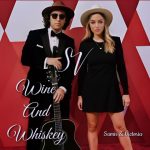


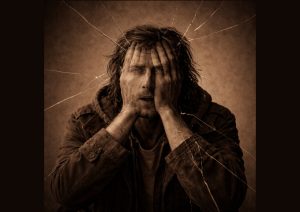
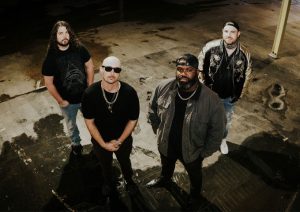
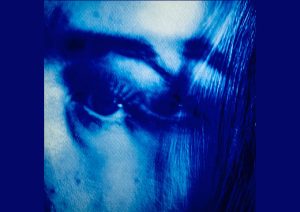
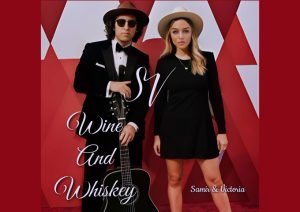
More Stories
“Hay Zeus”, Heavy History: Ty Bru on Legacy, Layers, and Letting Go at 20 Years of MTTS
The Cosmic Factory on 15 Years of Psychedelic Alchemy and the Making of ‘Lab Grown’
Detroit Soul, Modern R&B Elegance: An Interview with Reggie Braxton